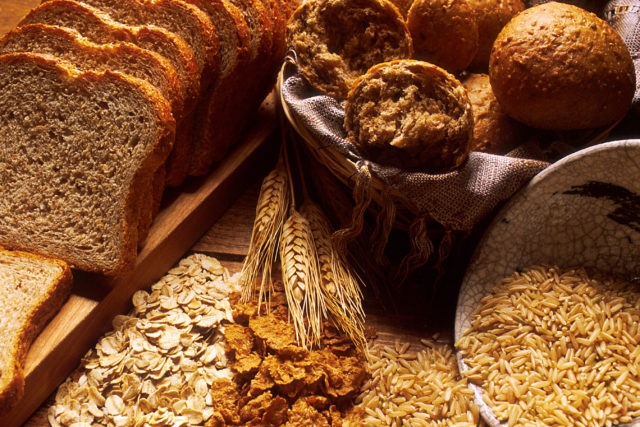Give us this day our daily bread.
Years ago, one of my seminary professors quite rightly pointed out that the Lord’s Prayer does not say, “Give us this day our daily cake.”
The kind of bread that we buy in stores probably would not sustain life for very long, but the whole grain breads of the ancient world were in themselves sufficient for life. In other words, we may pray for our daily needs and necessities. We may depend upon God for our sustenance and substance.
For the first part of explanation of the Lord’s Prayer, read my previous blog.
Next comes one of the most frightening petitions of all:
And forgive us our trespasses, as we also have forgiven those who trespass against us.
The word “trespass” refers to our violation of the moral commandments of God; our stepping across the boundaries of the will of God. The version of this prayer that appears in Luke 11 uses a financial term: “Forgive us our debts.”
Whichever metaphor you prefer to use, the point is that we are morally indebted to God. We have done business with God, and we have been found a failure. We owe Him our obedience, and we have not properly paid Him His due.
The verb in question here is “forgive.” To paraphrase, “Forgive us our trespasses. We have violated Your holy will. Your commandments are sufficiently clear to us, yet we act as though we do not know Your will. Oh God, we have morally transgressed what is clear to us.”
No Christian should ever act as if he or she is not in need of forgiveness. Occasionally we have pietistic movements in Christian experience whereby people act as if they have somehow advanced to a higher plain where they no longer sin or need forgiveness. I have even heard people say that, because we have been once forgiven in Christ Jesus, we no longer need to pray the Lord’s Prayer. That is nonsense.
This prayer that Jesus taught was not only relevant for the disciples until Jesus’ death on the cross; this prayer has been preserved for us in Holy Writ. It is part of the tradition of the Church. The earliest Christians prayed this prayer and took seriously the notion that we stand in need of forgiveness.
Read more about forgiveness in “How to Live in the Sphere of God’s Protection.”
Forgive us our trespasses, as we forgive those who trespass against us.
This may literally mean, “while we forgive those who sin against us,” or it may also mean, “forgive us, oh God, in the same way that we forgive others.” Either way, it is clear that in some dramatic way we dare not ask for forgiveness for ourselves unless we are willing to extend that forgiveness to others.
Somehow, the inability to forgive others reflects poorly upon our own appreciation, apprehension, and comprehension of the great debt that we have been forgiven. It is far better for us to extend the mercies of God to others, not so that we may earn the mercies of God, but because we ourselves have been forgiven a very great debt.
Read more about the debt we have been forgiven in this blog.
And do not lead us into temptation, but deliver us from evil.
Our Lord took the power of the evil one seriously. The power of forces of darkness ought never to be taken lightly. There is too much evil in the world simply to be explained by psychological phenomena, social forces of culture, or the imagination. Evil is real and palpable in our culture and in our world. We ought to take that seriously. None of us ought ever to be so presumptuous as to think that we cannot fall into grievous sin.
The preceding was adapted by Rachel Motte from a sermon Dr. Sloan delivered at Tallowood Baptist Church on April 29, 1990.
